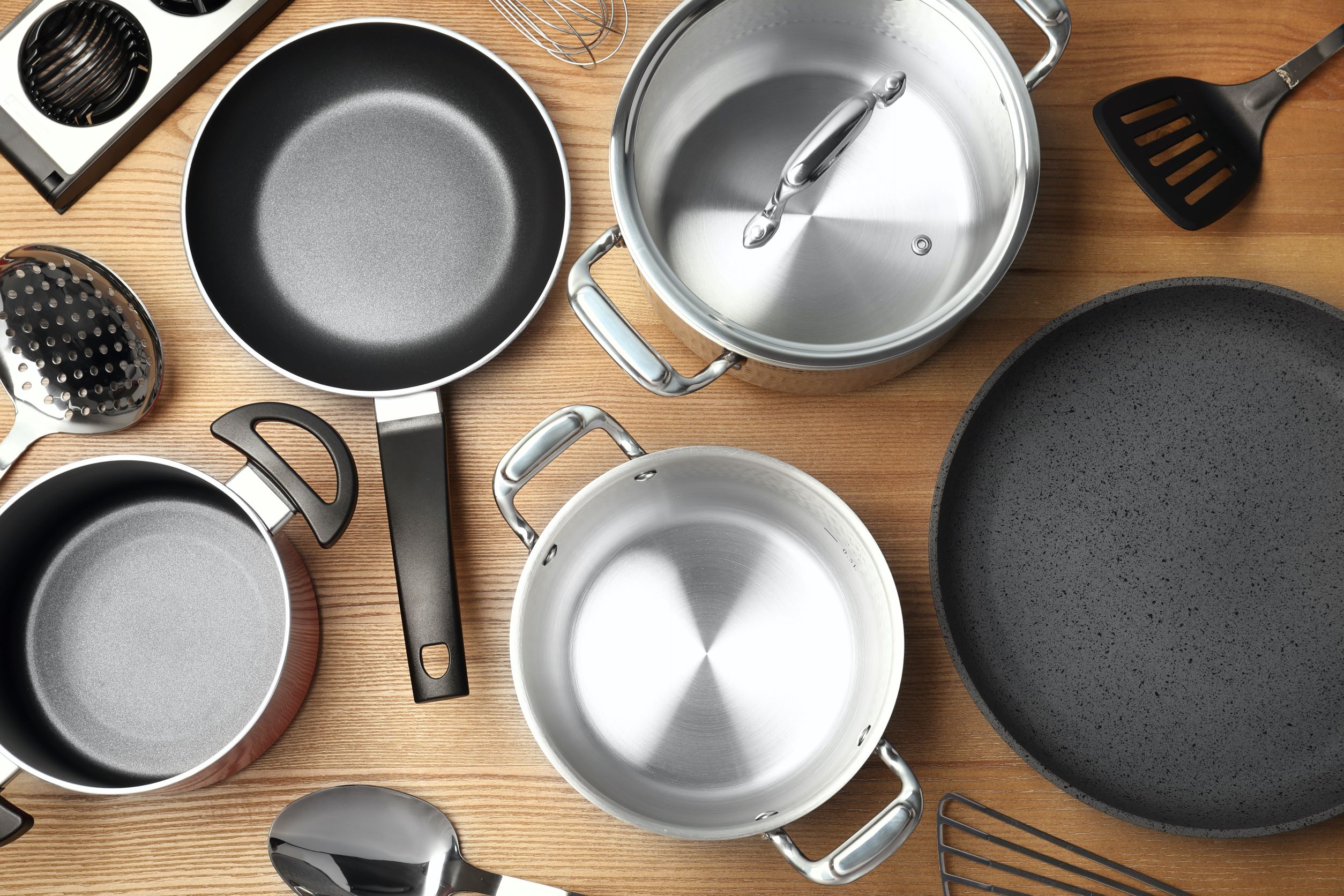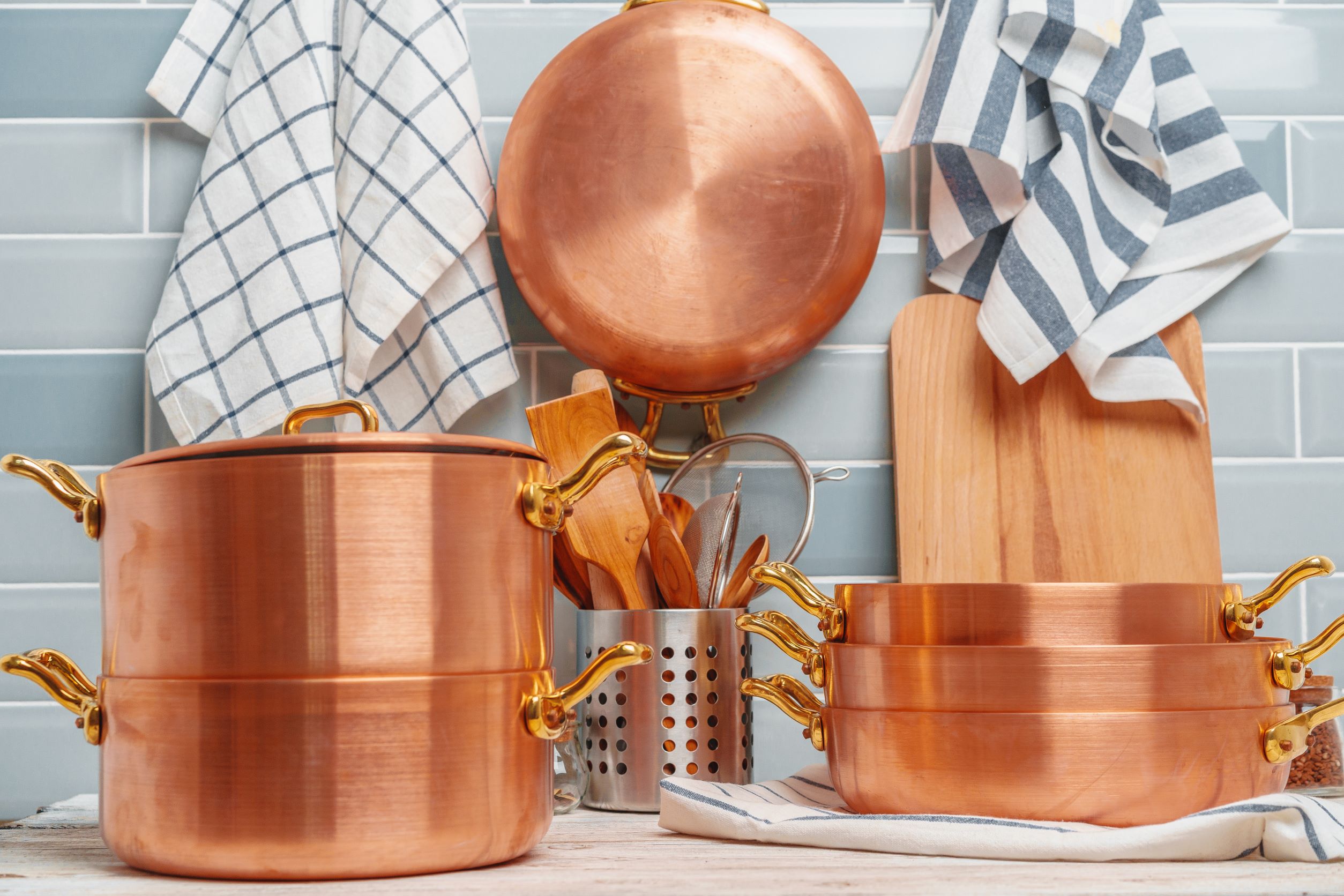
Cookware not only comes with different shapes, but also materials. Cast iron, stainless steel, nonstick, aluminium and ceramic are some of the most common cookware materials. Copper, as luxurious as it is, seldom appears in ordinary families. The use of various cookware materials is not just for aesthetic reasons, because each material performs suits a specific cooking style. The following guide will help you determine what types of cookware materials should be included in your kitchen.
Cast iron
Cast iron is a very durable and inexpensive material which doesn’t dent or chip. If taken care properly, cast iron cookware can last for generations. It has a high heat retention but takes time to heat up, so is ideal for browning, stewing, braising and baking.
Seasoning is an important maintenance skill for cast iron cookware. It is a process of creating a non-stick coating by heating up oil on dry cast iron cookware. Such coating can help to prevent rusting and regular seasoning is necessary for performance and lifespan.
Some people don’t like cast iron solely because it is heavy. Besides, it is chemically reactive and should not be used to cook acidic foods like vinegar and tomatoes. Rusting is another issue, so the cookware must be kept dry after every use.
Carbon steel
An ideal alternative to cast iron if weight is an important factor. Carbon steel has similar properties to cast iron and needs to be taken care likewise. This type of cookware is usually thinner, lighter and has a smoother surface. However, it is much more expensive than cast iron.

Copper
Copper is a luxurious option of cookware which looks gorgeous in any kitchen. It is the best heat conductor with very even heat distribution. Therefore, copper cookware is best used in searing, frying and simmering.
One of the main drawbacks of copper is reactivity, which can lead to production of toxic compounds. So it is commonly lined with another materials like stainless steel or tin. Maintenance is not easy for copper. It can discolor when exposed to heat and tends to dent easily, so regular polishing is needed to keep its luster.
Stainless steel
Versatility, durability, lightweight and dishwasher safe are some reasons that stainless steel is more popular than any other cookware materials. It is easy to maintain as steel is not reactive to food and is resistant to scratch and dent. Also, it has a smooth surface that is without any coating, so cleaning can be simple and easy.
However, stainless steel tends to stick with food. It can make cleaning difficult sometimes. It is a poor heat conductor, so it takes longer time to cook. Using a copper or aluminum bottom is a common way to improve heat conduction and distribution for stainless steel cookware.

Ceramic
Ceramic heats up slowly and is a great material for slow cooking, like a casserole dish. It is chemical-free, nonstick and chemically inert. Porcelain, earthenware and stoneware are different types of ceramic cookware. The durability of them can be different, but chipping and scratching is common for this cookware.
Aluminum
Aluminum is a very popular cookware material. It is a very good heat conductor that is lightweight, durable and inexpensive. The downside of it is reactivity with acidic foods and tendency to stain. Therefore, aluminum is usually anodized or coated with a non-stick coating.
Anodized or hard-anodized aluminum is very durable and harder than steel. It makes the cookware non-reactive and resistant to corrosion and scratch. Some products are further lined with a nonstick coating to improve its performance.
Nonstick
The non-stick coating (like Teflon) makes this type of cookware easy to use and clean, especially when cooking sticky foods like eggs and fishes. Today, nonstick cookware is very common and budget-friendly. However, it tends to have shorter lifespan than other cookware materials, as it can be scratched easily and the coating will wear off over time. Metal utensils, abrasive cleaners and high-heat cooking should be avoided when using nonstick cookware. Health concern is one of the major issues as toxic chemical may be released and stick to the food during cooking.


